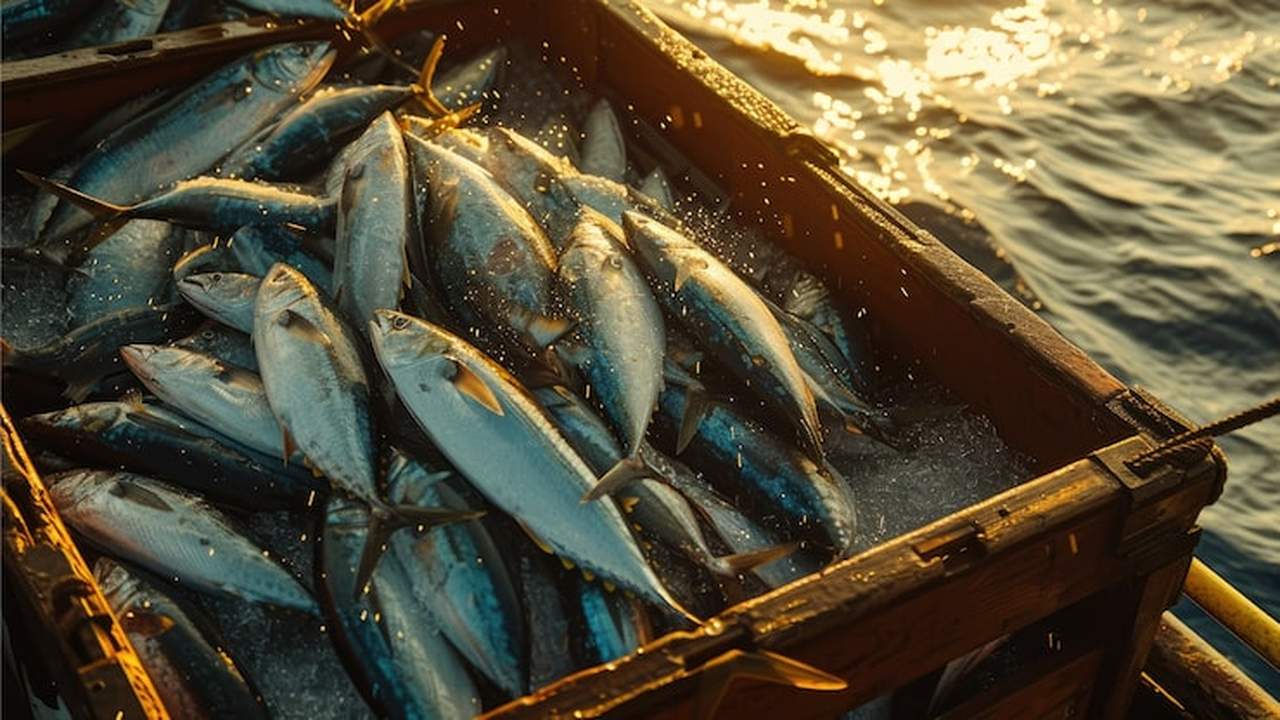 In the realm of aquaculture, a groundbreaking revolution is underway in Denmark with the unveiling of the world's first circular fish farming facility. Onnest, a visionary project led by Samuel Muren and Håkon Volden, is set to redefine traditional fish farming practices by embracing circularity in its operations. This innovative concept promises zero waste, enhanced fish welfare, and sustainable feed production, challenging the status quo of the industry. As the facility in Hirtshals prepares to set a new standard in 2028, the global implications of this pioneering endeavor are poised to transform the future of fish farming worldwide.
In the realm of aquaculture, a groundbreaking revolution is underway in Denmark with the unveiling of the world's first circular fish farming facility. Onnest, a visionary project led by Samuel Muren and Håkon Volden, is set to redefine traditional fish farming practices by embracing circularity in its operations. This innovative concept promises zero waste, enhanced fish welfare, and sustainable feed production, challenging the status quo of the industry. As the facility in Hirtshals prepares to set a new standard in 2028, the global implications of this pioneering endeavor are poised to transform the future of fish farming worldwide.
Redefining Fish Farming Practices
The concept of circularity in fish farming is at the core of the Onnest project in Denmark, led by Samuel Muren and Håkon Volden. This innovative approach aims to address the environmental challenges associated with traditional aquaculture by implementing zero waste practices, ensuring optimal fish welfare, and revolutionizing feed production. By reimagining the entire process of fish farming, from operations to architecture, Onnest is setting a new standard that prioritizes sustainability and transparency. The collaboration with architecture firms, such as Lendager, highlights the interdisciplinary nature of this endeavor, where design plays a crucial role in achieving the project's ambitious goals.
Sustainable Feed Production and Environmental Impact
One of the key sustainability pressures in fish farming is the sourcing of fish feed, a major contributor to greenhouse gas emissions. Onnest plans to tackle this issue by developing a circular feed system based on locally produced algae and fish-processing waste, reducing the reliance on imported ingredients like soy. By integrating innovative solutions, such as utilizing excess heat from nearby industries for production processes, the project demonstrates a holistic approach to minimizing environmental impact. This shift towards sustainable feed production not only benefits the environment but also aligns with consumer preferences for ethically sourced products.
Enhancing Animal Welfare and Product Quality
Ensuring high levels of fish welfare is a fundamental aspect of the Onnest project, emphasizing the importance of ethical practices in aquaculture. By focusing on creating optimal living conditions for the fish, the facility aims to achieve a remarkable survival rate of over 95%, far surpassing industry standards. Nicholas Duxbury Ransome, CEO of Lendager, underscores the significance of this commitment to animal welfare in producing fish with superior nutritional profiles and quality. The emphasis on zero mortality and the integration of advanced technical systems highlight Onnest's dedication to redefining the relationship between aquaculture and animal well-being.
Global Implications and Scaling Sustainability
As the world's first circular fish farming facility, Onnest in Denmark is poised to become a beacon of innovation with far-reaching implications for the aquaculture industry globally. The project's vision of scalability beyond Denmark's borders underscores the potential for transforming fish farming practices worldwide. By showcasing the economic viability of circularity, premium pricing, and full traceability through blockchain technology, Onnest aims to engage consumers in sustainable food systems and set a new standard for transparency in the industry. The integration of circularity into every aspect of the facility's design and operations paves the way for future developments in sustainable aquaculture practices.
Conclusion
In the realm of aquaculture, Onnest's groundbreaking circular fish farming facility in Denmark, spearheaded by Samuel Muren and Håkon Volden, stands as a beacon of innovation and sustainability. By redefining traditional practices with zero waste, sustainable feed production, and enhanced animal welfare, Onnest sets a new standard for the industry. As this visionary project prepares to revolutionize fish farming in 2028, its global implications signal a transformative shift towards transparency, scalability, and ethical sourcing practices. The ripple effect of Onnest's commitment to circularity resonates far beyond Denmark, challenging stakeholders worldwide to embrace a future where sustainability and profitability go hand in hand.